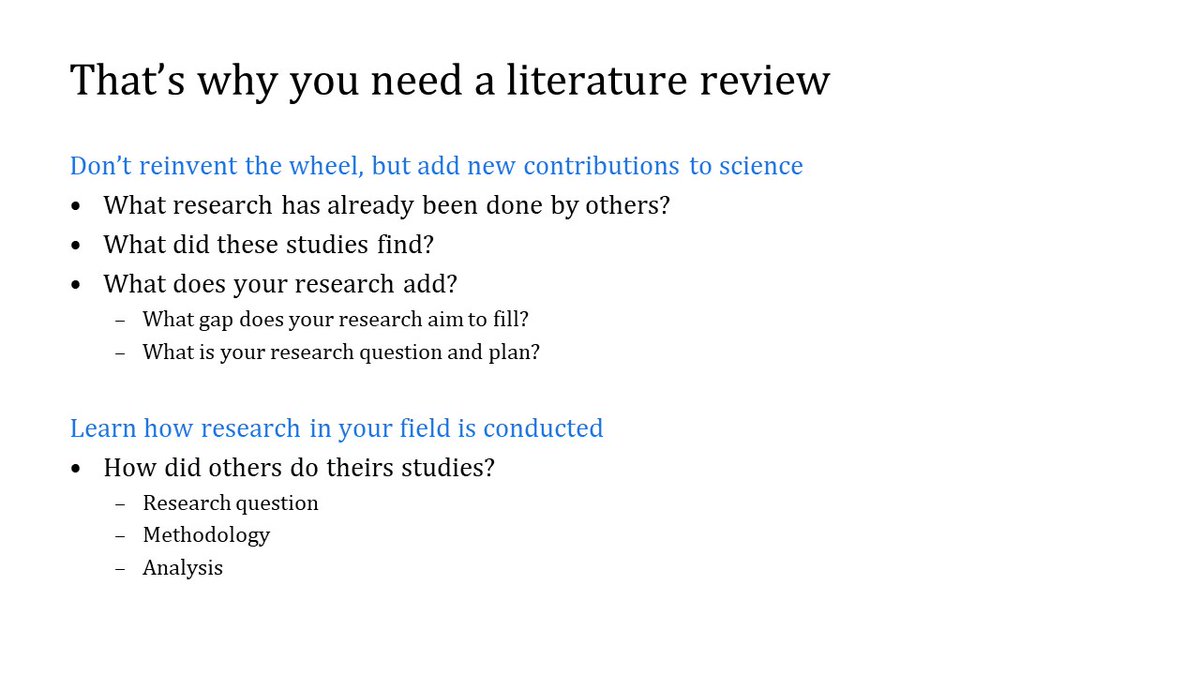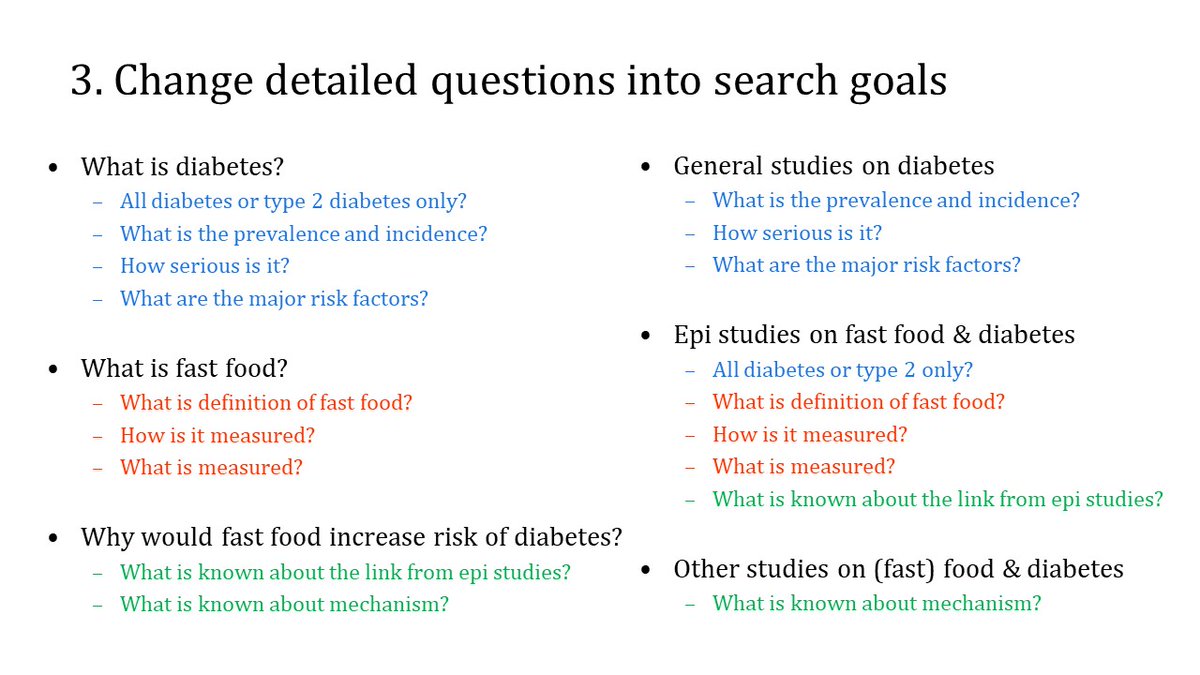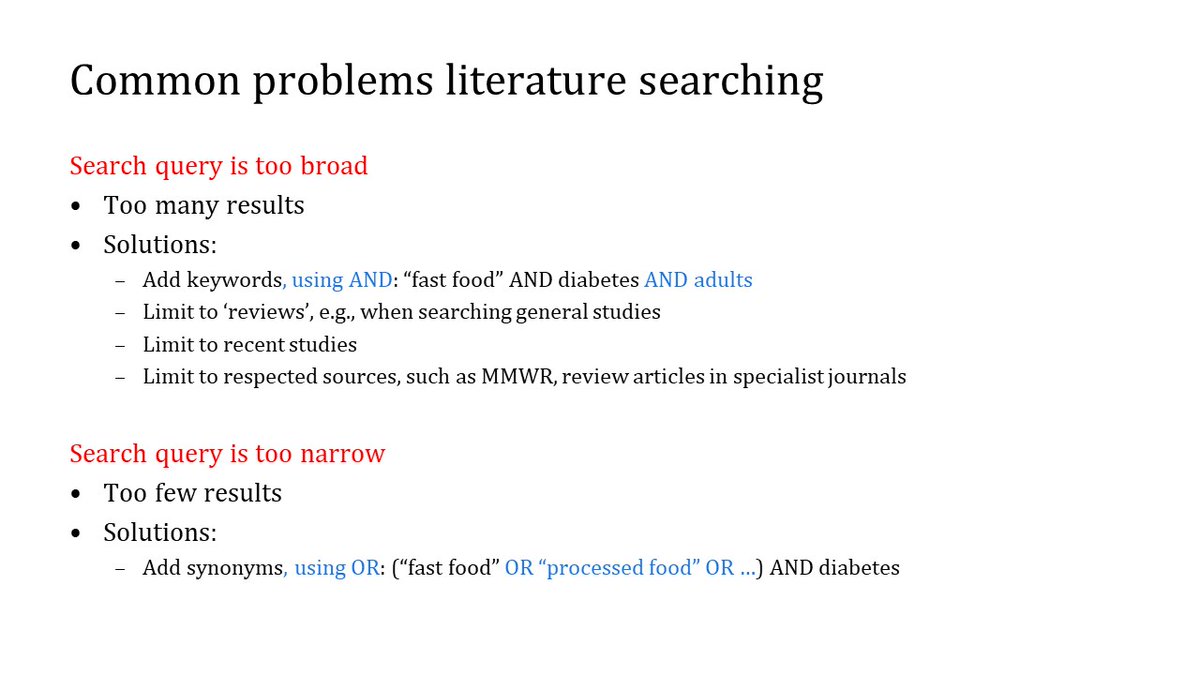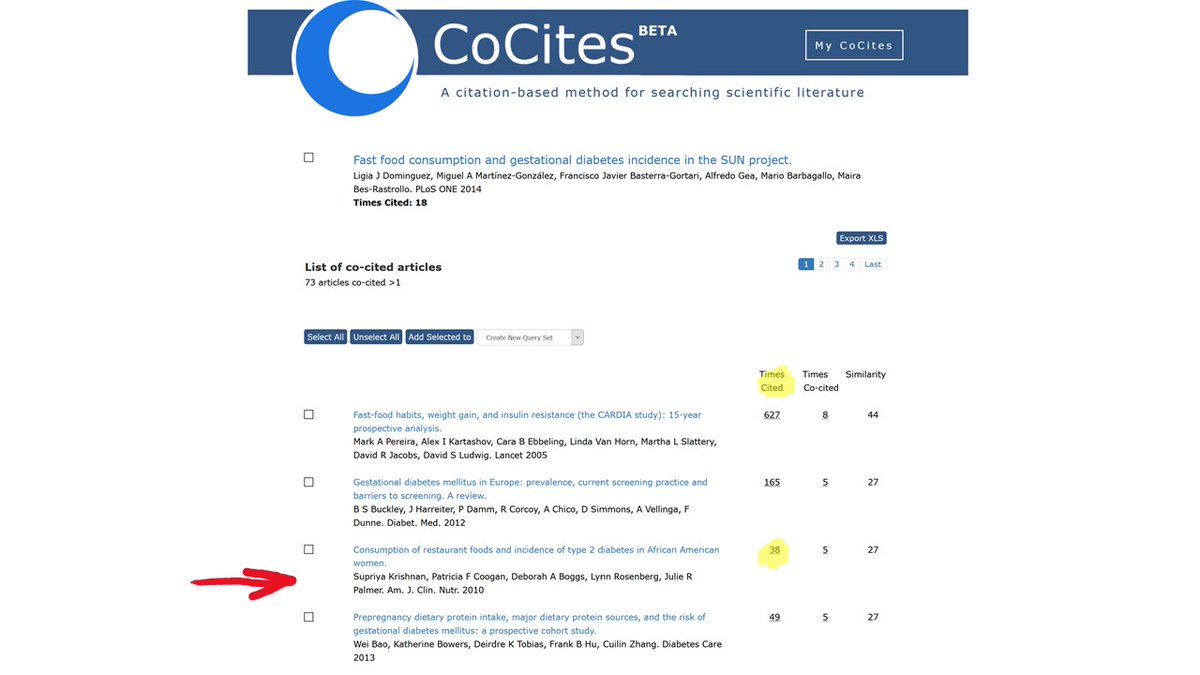Is searching scientific literature the most undervalued aspect of scientific research or is that my impression only?
I gave a lecture to our epi students on how to search literature for their theses.
Here& #39;s the essence, incl, I& #39;m biased, how @CoCites makes searching easier.
1/
I gave a lecture to our epi students on how to search literature for their theses.
Here& #39;s the essence, incl, I& #39;m biased, how @CoCites makes searching easier.
1/
Everyone who wants to do science needs to find out
- what the state of the art is on their topic, and
- how you set up a study that can move the science forward.
It& #39;s not & #39;any study will do& #39;.
- what the state of the art is on their topic, and
- how you set up a study that can move the science forward.
It& #39;s not & #39;any study will do& #39;.
You will need that background research not only for the introduction of your thesis/paper, but for all of it. Doing science is more than running a data analysis ...
... and doing a literature search is more than finding *some* relevant papers to fill the introduction of your thesis. Your goal is to find the best and most relevant studies. But how do you get there?
Your literature search starts with making a plan on what you need to know for the study. And that plan starts with getting clear what your exact research question is.
You then need to find out what each of the used concepts mean in the context of your study, and what there is to be known about the links between them.
Next you need to think in what kind of articles/sources you will likely find each of these details. This tells you what kind of articles you need to search for.
Finally, for each of the articles that you need to find, you write a separate search strategy.
Searching the literature is not one search, it is one search for each of the details. You may also need to search in multiple databases too, depending on your topic.
Searching the literature is not one search, it is one search for each of the details. You may also need to search in multiple databases too, depending on your topic.
Writing good search queries is a skill that needs a lot of practice. You may easily end up with searches that yield too many or too few results. You have to try multiple search queries to find out which yields relevant articles.
Here is where @CoCites comes in handy. Even if your search is too narrow, if it includes a study that is (approximately) what you were looking for, then you can find other and better ones via co-citation searching (check the full presentation for details)
A co-citation search finds other papers on the same topic, and among these may be others that are more relevant. You can use the latter ones to run a more relevant co-citation search.
Here, our search paper was on diabetes and fast food (restaurant food), and the results include others on this link too. You can select these, combine them in a search set, and re-run a co-citation search to find more.
Literature searching is an iterative process. You unlikely (read: don& #39;t) find all relevant literature at once.
You need to revisit searches, update and re-run them. If further refining doesn& #39;t yield new articles, you can be more confident that you retrieved the most relevant.
You need to revisit searches, update and re-run them. If further refining doesn& #39;t yield new articles, you can be more confident that you retrieved the most relevant.
The entire lecture can be downloaded here: http://www.cecilejanssens.org/literature-review-for-student-theses/
To">https://www.cecilejanssens.org/literatur... download the CoCites browser extension, visit http://www.cocites.com"> http://www.cocites.com
To">https://www.cecilejanssens.org/literatur... download the CoCites browser extension, visit http://www.cocites.com"> http://www.cocites.com

 Read on Twitter
Read on Twitter














